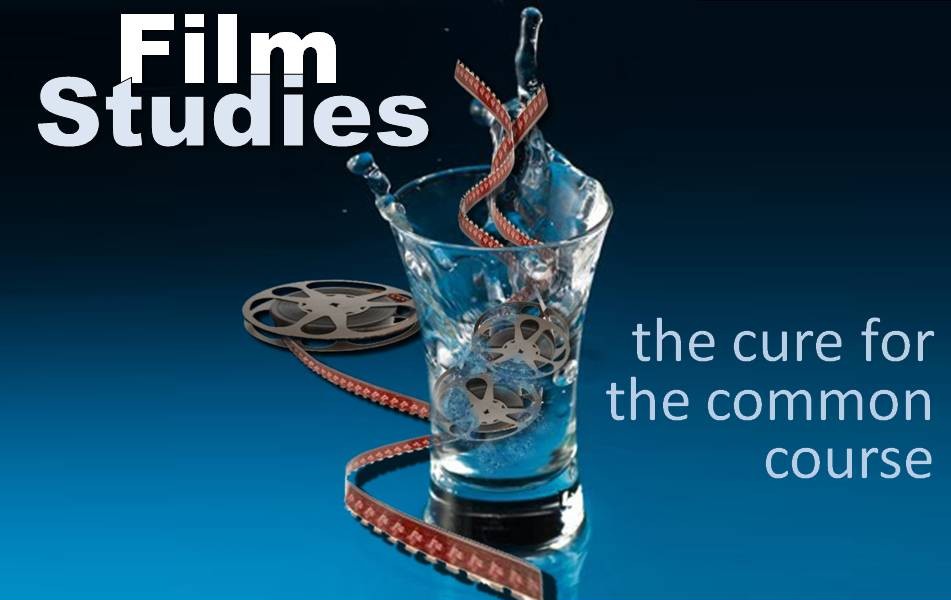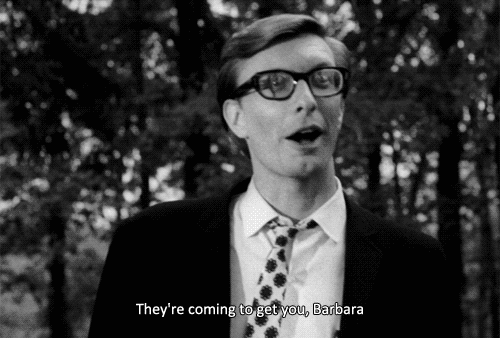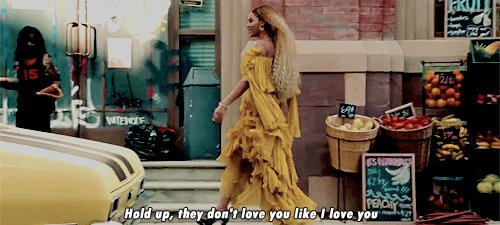ENGL 1500-001
Topics in Words, Images, and Ideas: Monsters and the Supernatural in Film and Folklore
Instructors: Dr.Anna Froula and Dr. Andrea Kitta
Class Time: Tuesday and Thursday, 11:00-12:15
Film screenings: streaming titles watched outside of class
What is horror? What draws us to what we fear? How do our fears change over time? How do we process real-life traumas and terrors through film and other media such as memes? How do we face the monsters we create? What happens when the monster is ourselves? This course will focus on these questions and more through a lively examination of monster movies, urban legends, and other media.
Screenings include Birth of a Nation (DW Griffith, 1915), Get Out (Jordan Peele, 2017), Skeleton Key (Iain Softley, 2005), Frankenstein (James Whale, 1931), Night of the Living Dead (George A. Romero, 1968), Only Lovers Left Alive (Jim Jarmusch, 2014), and Under the Shadow (Babak Anvari, 2016), Parasite (Bong Joon-ho, 2019)
****ENGL1500.001 counts as an elective for Film Studies minor in Fall 2021****
ENGL2260: Topics in Contemporary African American Cultural Texts: Black Cinema, Past & Present
Instructor: Amanda Ann Klein
Times Offered: Tuesday & Thursday, 2pm-3:15pm
Film screenings: streaming titles watched outside of class
This class explores the construction of race, racial difference, and other intersecting identities in contemporary Black media, literature and/or folklore. This specific iteration of the course explores how race and racial difference is constructed in American cinema and to what effect, using cinema as a framework for understanding political, social, and cultural history of American race relations and racial difference. The course will be structured around multiple interlinked questions about race and representation such as: what is a Black film? Is it defined by the race of its director, its actors or its thematic concerns? We will also address issues of authorship, stardom, and audience. We will discuss if and how filmic representations have the ability to impact the way audiences understand race, but also gender, sexual orientation, religion, and physical ability. We will ask how and why cinematic representations of race change over time.
Screenings: Cabin the Sky (1943, Vincente Minelli), Moonlight (2016, Barry Jenkins), Guess Who’s Coming to Dinner? (1967, Stanley Kramer), Coming to America (1988, John Landis), Menace II Society (1993, Albert and Allen Hughes), Just Another Girl on the IRT (1992, Leslie Harris), Black Panther (2018, Ryan Coogler), Get Out (2017, Jordan Peele)
Alternative textbook class (i.e. no textbook expenses)
****ENGL2260 counts towards the Multicultural/Transnational/International Film Cognate in the Film Studies minor in Fall 2021****
ART2411 Introduction To Scriptwriting
Instructor: Mike Tierno
This is a writing intensive course where students conceive and formulate ideas for short films, develop their ideas in pitch sessions, treatments and outlines and finally complete three short film scripts capable of being produced in a production class. Actors will be brought in for the purpose of reading the scripts aloud which is a key part of developing a screenplay. Other areas of the course will include studio style screenplay analysis (script coverage), analyzing and breaking down movies, and even the writing of longer projects if the student is suitable for it. Hollywood industry standard software Final Draft will be taught and used and students will get free access to the program for the duration of the course.
****ART2411 counts as an elective for Film Studies minor in Fall 2021****
FILM2900.001: Introduction to Film Studies (FC: HU)
Instructor: Amanda Ann Klein
Times offered: Tuesday & Thursday, 9:30-10:45 am
Film screenings: streaming titles watched outside of class
The goal of this course, as its title suggests, is to “introduce” you to the broad field of film studies, including formal analysis, genre studies, film history and theory. By the end of the semester you will have the basic critical tools necessary for understanding and analyzing the language of motion pictures. Ideally, this course will enable you to not only gain a richer understanding of the films you watch but also the television shows, You Tube videos, commercials, and other media you encounter on a daily basis.
Films to be studied include: City of God (2002, Fernando Meirelles & Kátia Lund), Do the Right Thing (1989, Spike Lee), The Virgin Suicides (1999, Sofia Coppola), Bicycle Thieves (1949, Vittorio de Sica), The Queen of Versailles (2012, Lauren Greenfield), Midsommar (2019, Arti Aster)
Alternative textbook class (i.e. no textbook expenses)
****FILM2900 is a required course for the Film Studies minor****
FILM2900.002: Introduction to Film Studies
Instructor: Dr. Anna Froula
Times offered: Tuesdays and Thursdays, 12:30-1:45pm
Film screenings: streaming titles watched outside of class
The goal of this course, as its title suggests, is to “introduce” you to the broad field of film studies, including formal analysis, genre studies, film history and theory. By the end of the semester you will have the basic critical tools necessary for understanding and analyzing the language of motion pictures. Ideally, this course will enable you to not only gain a richer understanding of the films you watch but also the television shows, You Tube videos, commercials, and other media you encounter on a daily basis.
Screenings will include: Night of the Hunter (Charles Laughton, 1955), BlackKklansman (Spike Lee, 2018), 13th (Ava DuVernay, 2016), Dope (Rick Famuyiwa, 2015), Popstar: Never Stop Never Stopping (Jorma Taccone & Akiva Schaffer, 2016), Lemonade (Beyoncé Knowles Carter, 2016), Moonlight (Barry Jenkins, 2016), Sullivan’s Travels (Preston Sturges, 1941)
****FILM2900 is a required course for the Film Studies minor****
HIST 3635: Samurai History and Cinema (Global Diversity)
Instructor: John A. Tucker
Times Offered: online
Film screenings: streaming titles watched outside of class
Samurai films emerged in the 20th century as Japan’s most distinctive contribution to the history of global cinema. They also provided domestic and global audiences with an interpretive perspective on samurai in Japanese history. This class examines these films as works of cinematic art as well as historical statements about Japan’s traditional military elite. While the class opens with works by “the father of Japanese cinema,” Makino Shozo (1878-1929), it focuses largely on the cinematic legacies of Akira Kurosawa (1910-1998), one of world’s greatest film makers ever. The course also explores anime samurai films such as Miyazaki Hayao’s Princess Mononoke (1997), and filmed versions of kabuki performances of samurai tales in the context of Japanese history and culture. More contemporary examples of samurai films such as Beat Takeshi’s The Blind Swordsman: Zatoichi (2003) are also analyzed. No previous knowledge of Japanese is required. All films include English subtitles.
Screenings: The Brave Hero, Jiraiya (1921, Makino Shozo), Chushingura: The True Story (1928, Makino Shozo), Men Who Tread on Tiger’s Tail (1945, Akira Kurosawa), Rashomon (1950, Akira Kurosawa), Throne of Blood (1957, Akira Kurosawa), Yojimbo (1961, Akira Kurosawa), Kwaidan (1965, Masaki Kobayashi), Kagemusha (1980, Akira Kurosawa), Ran (1985, Akira Kurosawa), Princess Mononoke (1997, Miyazaki Hayao), The Blind Swordsman: Zatoichi (2003, Beat Takeshi), Yamatotakeru Super Kabuki (2004, Ichikawa Danshiro), and Afro Samurai (2009, Takashi Okazaki).
****HIST 3635 counts as an elective for Film Studies minor in Fall 2021****
FILM3900: American and International Film History Part I (History of Film from 1895 to World War II)
Instructor: Amanda Ann Klein
Times offered: Tuesday & Thursday, 11am-12:15 pm
Film screenings: streaming titles watched outside of class
This course is a broad survey of the major films, genres, regulatory bodies and economic structures that defined cinema, both American and international, from its inception in the mid- 1890s through the onset of World War II. The course will address the social, industrial, and aesthetic history of these films, studying how they were made, sold, and exhibited in theaters. Students will begin the course by focusing on the technological and social changes that led to the development of the cinema and how later developments, such as the coming of sound and the development of various international studio systems, impacted the medium. While the major concern of this course is to understand these films in terms of their historical context, studies will also examine specific formal, narrative and rhetorical choices made by the individual films and filmmakers.
Screenings: Within Our Gates (1920, Oscar Micheaux), The Crowd (1928, King Vidor), Der Letzte Mann [The Last Laugh] (1924, F.W. Murnau), Battleship Potemkin (1925, Sergei Eisenstein), It (1927, Clarence J. Badger), The Jazz Singer (1927, Alan Crosland), La Règle du jeu [The Rules of the Game] (1939, Jean Renoir), Ukikusa monogatari [A Story of Floating Weeds](1934, Yaujiro Ozu), The Lady Vanishes (1938, Alfred Hitchcock), I am a Fugitive from a Chain Gang (1932, Mervyn LeRoy)
Alternative textbook class (i.e. no textbook expenses)
***FILM3900 counts toward the Film History Cognate for the Film Studies Minor***






